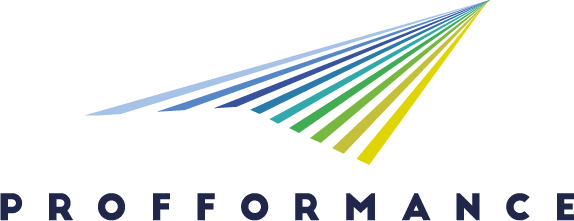Digital KnowledgeTrees
Converting Course Content into Digital KnowledgeTrees in order to Teach, Learn and Use them in Practice in Everyday Life
- 01 - Education
- 04 – Business, administration and law
2. Innovative teaching and learning
- Student partnerships/engagement in the teaching and learning practice
- Differentiated instruction - promoting diversity of materials and learning styles
- Innovative online and blended learning methods, engaging and participative hybrid learning organization
- Entrepreneurship projects, work-based learning
- Case-based teaching, case study – object of study to put into practice the knowledge acquired through a real, fictitious or adjusted description/case of reality.
Converting Course Content into Digital KnowledgeTrees in order to Teach, Learn and Use them in Practice in Everyday Life means following: Lecturers and Students take course content, which is given in textbooks and in Laws and transform it into Digital Knowledge Trees (DKT). For example, Law of Georgia on Entrepreneurs regulates, how to establish a company, e. g. a Start-Up. During lectures students and lecturer go through the mazes and labyrinths of the law together and build a perfect, clear and precise knowledge tree that shows, e. g. 20 steps required to establish a Start-Up. The process of searching and visualization help students to easily understand and memorize what is required for establishing a Start-Up. The DKT that they have just built can be accessed in the future as well. After they graduate and want to establish a real Start-Up they have detailed steps ready, that they can rely on. As DKTs are online, they can even share it with their friends. DKTs are also used to grade the students. During homework and exams students need to show that they know the topic. There is no need to write 5-page essay “how to establish a Start-Up” (which would be required at many universities in Georgia). At BTU University students build digital knowledge trees. If student missed some steps, this means that they lack the knowledge and understanding. If they got everything correct, this means, they will be able to establish a Start-Up in real life as well. As for the grading, once the students have built their own DKTs as part of the assignment, the platform uses the artificial intelligence to compare two digital trees with each-other. This means that the students can receive the grade in seconds. Plus, depending on what part of the DKT they built incorrectly, the system generates a feedback document and refers the student to review corresponding learning material. As all the assignments are done on this platform, the system stores the grades and topics, where each student lost points. Before the exams, the system can automatically send out personalized email to each student and give them summery of what their weak points are. As the whole teaching course is based on the digital knowledge trees, I can write a simple code that automatises the entire abovementioned process. The system monitors the work of each student in a smart way, always compares the trees built by the students with the correct trees and takes individual actions.
Methodology
Tools, equipment, technology used
Outcomes and outputs, main results
Lessons learnt
Adaptability and sustainability of the best practice (for other institutions)
Promotion of best practice
Scope and impact
- Course/department level
- Faculty level
- Institutional level
- Cross-institutional level
- National level
- EU/EHEA/International level
6.1 Digitalization
- Outstanding, innovative, excellent practices of online / blended / hybrid learning
- Innovative, novel methodology in using digital tools/devices in teaching
- Digital skills development and assessment both general and profession-related, embedded in course design, in teaching and assessment
- Novel digital solutions (tools, frameworks, devices, tasks to enhance efficiency and motivation)
- Artificial intelligence and learning analytics in education and training
Reasoning: Everything connected to Digital Knowledge Trees (DKT) is digital. Legal texts are converted into digital knowledge trees that can be codes in order to perform various tasks. Artificial Intelligence can be applied to the DKT in order to automatically generate documents, check assignments, grade students, etc.
6.2 Internationalization
- Outstanding practices of international online collaborative learning
- Developing students' multicultural awareness
- Students engagement in international projects
- Courses implemented in international cooperation (projects, co-teaching, virtual/blended mobility, etc.)
- International projects/research results embedded into course development and T&L
Reasoning: Digital Knowledge Trees (DKT) can be translated from Georgian into any language within seconds using online translation tools. This gives a chance to foreign citizens to easily view and understand the content created by my students. Students in other countries can visualize their laws and then we can compare the DKT. These Digital Knowledge Trees are also used by Prof. Dr. Stephan Breidenbach in Germany.
6.3 Inclusion and diversity, universal design
- Inclusive course design, universally designed divers activities to meet special students' needs
- Universally designed teaching material - adjustable for special needs
- Innovative teaching methodology for inclusion and meet diverse student needs
- Alternative, flexible assessment methods for students with special needs
- Senzitivizing students to consider special needs when practicing their profession
- Course includes hints on how the services/products of the profession could be universally designed/inclusive
Reasoning: For the students who belong to minority groups in Georgia and cannot speak Georgian fluently, it is always challenging to understand complex content of the legal texts. Visualization is a great help here. The Knowledge Tree can be easily translated in any language.
6.4 Sustainability
- Sustainability goals are addressed in the course(s)
- Teaching material contains profession related sustainability aspects
- Social entrepreneurship projects, service-learning in the topic
Reasoning: As everything is online, it can be accessed anytime, from anywhere. Even the students that have already graduated have access to theot Knowldege trees, which helps them in their real-life careers.
3.3 Public contact datas
| Name | Email address | Website |
|---|---|---|
| Lado Sirdadze | lado.sirdadze@btu.edu.ge | https://btu.edu.ge/en/home-english/ |

